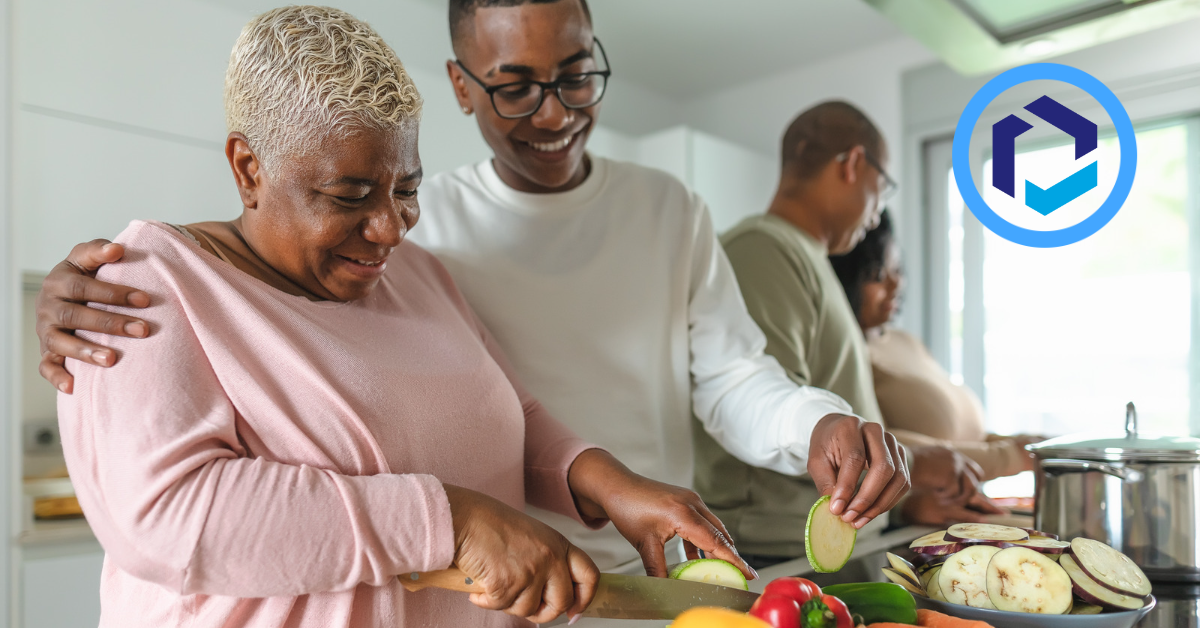
When you model and share health information with future generations, you can help them avoid or delay experiencing a diabetes or prediabetes diagnosis. Here are 5 ways to help break the cycle.
When I started as a diabetes educator in 2001, approximately 17 million people had a diabetes diagnosis. At the time, there wasn't much, if any, talk or statistics gathering about prediabetes. However, over the years, diabetes diagnoses have steadily increased despite medical advances and education, and so has the number of individuals at risk for diabetes and prediabetes. According to the Centers for Disease Control (CDC), approximately 37.3 million people have diabetes in the United States. Of the 37.3 million people, 28.7 million have a diabetes diagnosis, and 8.5 million people don't know they have it. In addition, over 96 million people 18 years and older have prediabetes.
An increase in diabetes diagnosis has often led to a rise in diabetes-related complications and, therefore, an increase in national spending on diabetes. According to the CDC, the United States spends approximately 237 billion yearly on direct medical costs and 90 billion in reduced productivity (i.e., employees calling in sick for issues related to diabetes complications and management).
But, every experience builds on the next one. People with diabetes (PWD) and their loved ones can continue to model healthy behavior and share what they know about healthy living with others, including their children and grandchildren.
You often reinforce whatever you teach in yourself, increasing your chances of personal accountability. The more you sew seeds of knowledge and wisdom, the more you grow these fruits within yourself and sustain optimal health. In addition, you learn something about yourself in every experience, including a diagnosis such as diabetes. When you model and share health information with future generations, you can help them avoid or delay experiencing the same thing. In addition, teaching others promotes self-confidence and self-control.
5 Ways to Help Break the Cycle of Diabetes
- Remembering that a diabetes diagnosis doesn't mean that you have to experience complications. However, individuals need to know that proper blood sugar management is the best way to delay and prevent diabetes complications.
- Dispelling myths about diabetes, such as diabetes is "just a little sugar." Diabetes affects the whole person, mind, body, and spirit.
- Modeling healthy eating habits. You can use meal times as an opportunity to share what you know. I call moments of education teachable moments. Most insurance cover educational sessions with a Registered Dietitian and a Certified Diabetes Care and Education Specialist. Always check with your health insurance to understand your benefits related to diabetes management.
- Taking a loved one to your educational sessions to learn about diabetes management. Usually, the educator covers lifestyle modifications everyone should be doing, such as completing 30 minutes of daily physical activity. In addition, educational sessions often cover the importance and strategies for balancing your meal plans, eating in moderation, eating healthier recipes, and incorporating food alternatives (i.e., Greek or plain yogurt for sour cream).
- Making the most of the time spent with your grandchildren or children. Make time to do physical activities with them. Now that the weather has changed for many states, use your creativity to keep active inside your home.
Much of what we learn (healthy behaviors and thoughts) comes from our home environment. Children look to their elders on how to eat, play, and live. Children don't need to be in fear of diabetes. Instead, they can feel empowered to live a healthy life. You can positively affect future generations and slow the rise of diabetes by modeling and sharing accurate and age-appropriate information.
Make this lifetime great because you can!

